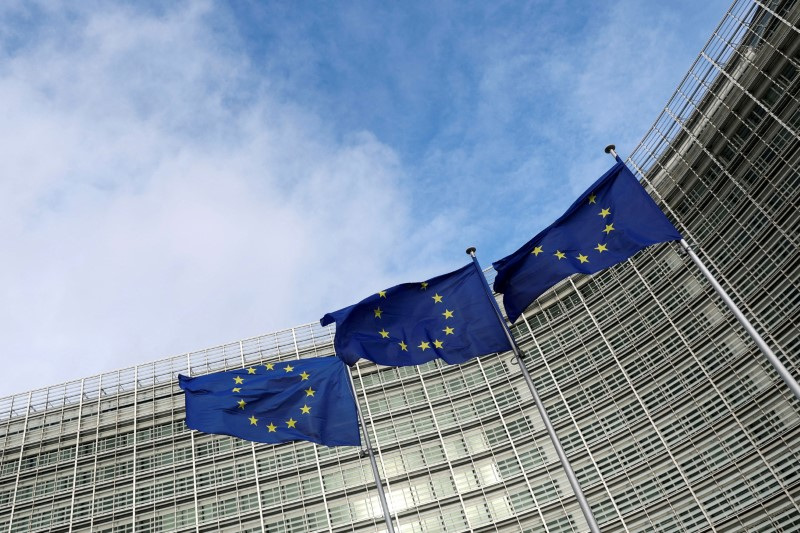EU Delays Decision on Scanning Encrypted Messages for CSAM

The European Union (EU) has resisted finalizing its controversial plan to scan encrypted messages for child sexual abuse material (CSAM), leading to an ongoing debate about privacy rights and digital security. This delay in decision-making reflects the complexity and sensitivity surrounding the initiative aimed at combating child abuse without compromising encryption integrity.
The proposed legislation involves scrutinizing private messages on platforms like WhatsApp, Signal, and other end-to-end encrypted services for CSAM. Proponents of the bill argue that it is essential for safeguarding children from abuse online. However, critics highlight that such measures could erode fundamental privacy rights and even break encryption, making all users' communications vulnerable.
This issue has drawn attention from various quarters, including members of the European Parliament, digital rights organizations, and technology firms. For instance, the Parliament's Civil Liberties committee voted against mass scanning of private and encrypted communications, showing a cautious approach towards the legislation. The committee's decision was backed by a significant majority, indicating strong political will to protect digital privacy.
Overview of the Delayed Decision
The EU's deferment of the scanning decision stems from intense scrutiny and the need to balance conflicting interests. Reports from the European Digital Rights (EDRi) and various advocacy groups emphasize the potential risks of compromised encryption. Criticism from these groups underscores that mass surveillance measures could invade individual privacy and are often unreliable.
The EU had initially intended to roll out scanning technologies to detect CSAM proactively. The delay has allowed for further examination of the technical and ethical implications of such technologies. Critics have expressed concerns that mass scanning could lead to unintended consequences, such as wrongful surveillance and breaches in data security.
Parliamentary Committee's Rejection
On November 14, 2023, the Civil Liberties committee decisively voted against the EU Home Affairs officials' attempt to implement mass scanning services. This vote was influenced by a political pact among Parliament's seven political groups, advocating for laws grounded in evidence and respecting human rights.
The rejected proposal, often referred to as 'Chat Control,' was seen as violating privacy rights and being disproportionately severe. Legal experts criticized the plan for not fulfilling the proportionality requirement needed for such significant surveillance measures. The proposal also faced accusations of conflicts of interest and misuse of targeted advertising.
Despite the committee's rejection, some elements within the EU legislation still need refinement to ensure robust privacy protection. The call for judicial oversight and focused implementation of scanning technologies is crucial to avoid indiscriminate surveillance.
End-to-End Encryption Concerns
A significant part of the debate revolves around end-to-end encryption. The Parliament's position clearly protects end-to-end encrypted services from scanning claims. End-to-end encryption ensures that only the communicating users can read the messages, offering strong protection against unauthorized access.
However, there's a perceived loophole in the current legislative wording, which must be addressed to guarantee comprehensive protection across all encrypted services beyond just private messaging, including hosting services like personal cloud backups.
Voluntary and Mandatory Scanning
The ongoing discourse also touches on the voluntary versus mandatory scanning of private messages. The European Parliament chose not to establish a permanent voluntary scanning regime, reflecting the sentiment that essential rights and freedoms should not be compromised by private entities' discretionary measures.
Instead, the committee extended the temporary provisions by nine months, allowing continued discussions on achieving a balanced approach to security and privacy. This extension underscores the need for careful deliberation in forming a final, acceptable legislative framework.
Age Verification and Risk Mitigation
The Parliament's stance on age verification and risk mitigation is another area of mixed outcomes. While the legislation limits mandatory age verification, protecting anonymity for many online services, it still mandates verification for adult content platforms, raising questions about consistency in policy intentions. Overly restrictive risk mitigation measures could inadvertently exclude young people from digital services designed for them.
Commercial Interests and Digital Rights
Concerns about commercial interests influencing the choice of scanning technologies have also been raised. Ensuring the independence of the EU Centre’s technology board from commercial entities is crucial to prevent market monopolies and ensure unbiased decision-making aligned with public interest and digital rights.
The finalization of this legislation remains closely watched by various stakeholders as the EU navigates the intricacies of balancing effective child protection measures with maintaining robust digital privacy and security standards.
This article was prepared using information from open sources in accordance with the principles of Ethical Policy. The editorial team is not responsible for absolute accuracy, as it relies on data from the sources referenced.
FAQ
Why has the EU delayed its decision on scanning encrypted messages for CSAM?
The delay is due to concerns about privacy rights, the integrity of encryption, and the need to balance security measures with human rights protections.
What are the main arguments against the EU's proposed scanning legislation?
Critics argue that the legislation could break encryption, leading to privacy invasions, misuse of surveillance power, and potential for abuse by unauthorized parties.
What was the outcome of the EU Parliament's Civil Liberties committee vote?
The committee voted overwhelmingly against mass scanning of private and encrypted communications, aligning with calls for laws based on evidence and human rights.
How does the proposed legislation impact end-to-end encryption?
The legislation could potentially weaken end-to-end encryption by mandating mass scanning of messages, which undermines the privacy and security protections such encryption offers.
What are some concerns about the mandatory age verification in the legislation?
Mandatory age verification for porn platforms and overly restrictive risk mitigation measures could compromise privacy and exclude young people from accessible online services.
What steps are being taken to ensure the independence of the EU Centre’s technology board?
Efforts include establishing measures to prevent commercial interests from influencing the board's decisions, aiming to maintain unbiased and public-focused technology assessments.